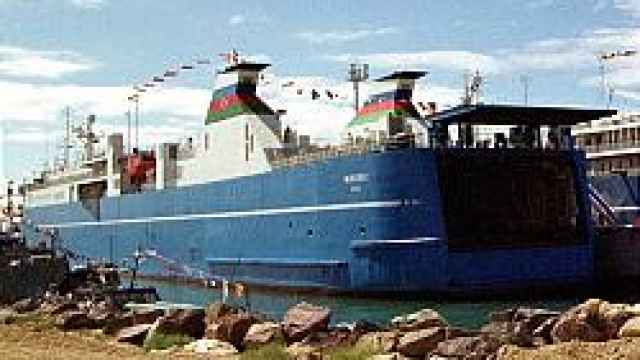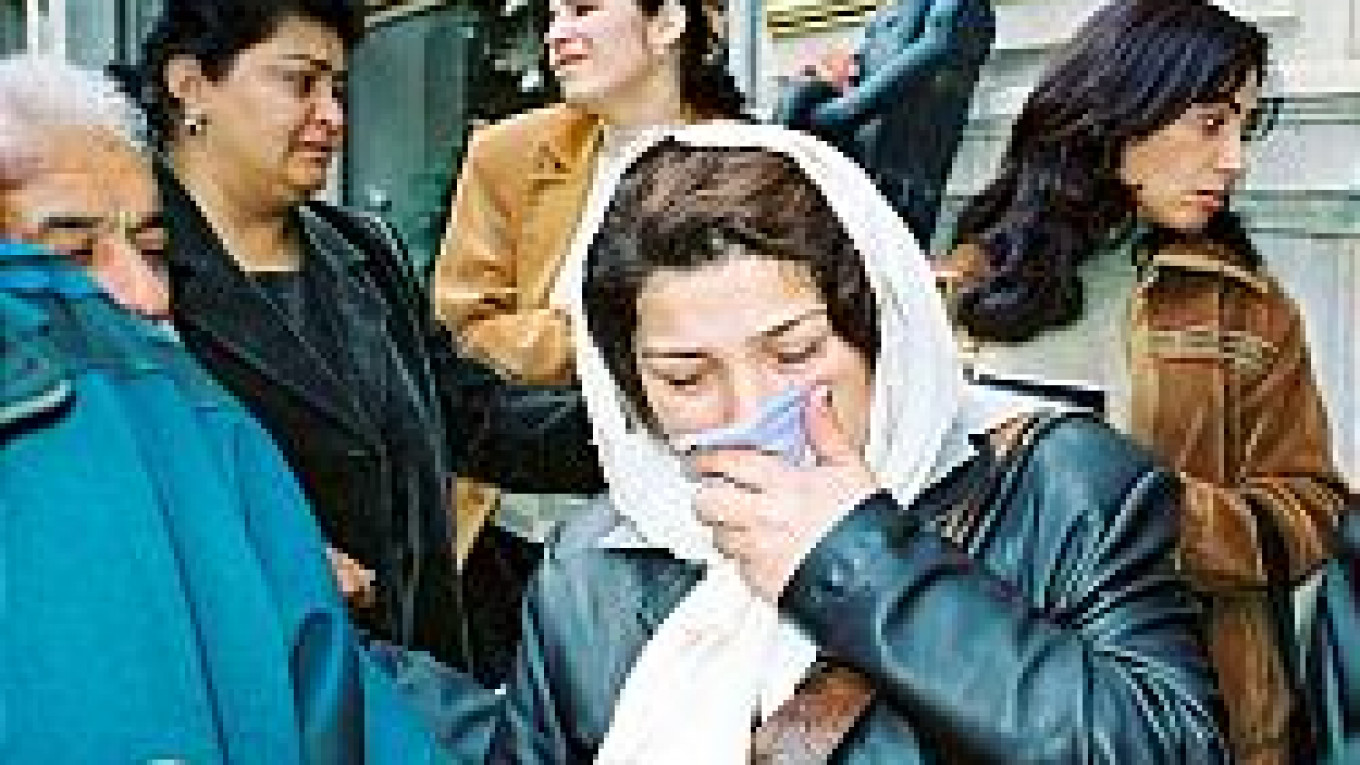Four people have been confirmed dead and at least nine others were known to have been saved Tuesday after the ship went down. Aidyn Bashirov, president of the Caspar shipping company that owns the 154-meter vessel, said 13 people had been found alive, but a government commission stuck fast to saying nine had been saved.
Initial statements from Caspar said the Mercury II was carrying 43 crew members and eight passengers, but people in a distraught crowd outside the company headquarters said other unregistered people may have been aboard the vessel. Among them was Aliaga Abbasov, who said he put his wife and 6-year-old daughter aboard the boat when it departed from the port of Aktau, Kazakhstan, on its fatal voyage.
The woman and child had no tickets and the ticket office was closed, so he paid a crew member to get the pair on board, he said. When he heard of the sinking, Abbasov said, he flew to Baku but could not find the name of his wife and child on a list of the missing that was posted there.
 Anatoly Ustinenko / Reuters The Mercury-2 freighter docked in the Kazakh port of Aktau in September 2001. | |
The state commission investigating the accident said an oil slick had spread over an area 8 kilometers long and 15 kilometers wide at the site of the sinking.
The ferry was carrying 15 containers of oil when it sank. However, the commission released no information on just how much oil had spilled into the water. Reports estimated the total amount of oil in the containers at 60 tons.
Bashirov said the search continued all night using ships with powerful searchlights. By morning, 12 boats and seven helicopters were involved in rescue efforts. However, the water temperature in the area was reported to be about 15 Celsius, too cold to survive in for more than a few hours.
Bashirov said the boat got caught in a storm in which winds of up to 30 meters per second whipped the sea into six-meter waves. The heavy seas caused the oil containers to shift to one side and the boat sank, Bashirov said.
A Message from The Moscow Times:
Dear readers,
We are facing unprecedented challenges. Russia's Prosecutor General's Office has designated The Moscow Times as an "undesirable" organization, criminalizing our work and putting our staff at risk of prosecution. This follows our earlier unjust labeling as a "foreign agent."
These actions are direct attempts to silence independent journalism in Russia. The authorities claim our work "discredits the decisions of the Russian leadership." We see things differently: we strive to provide accurate, unbiased reporting on Russia.
We, the journalists of The Moscow Times, refuse to be silenced. But to continue our work, we need your help.
Your support, no matter how small, makes a world of difference. If you can, please support us monthly starting from just $2. It's quick to set up, and every contribution makes a significant impact.
By supporting The Moscow Times, you're defending open, independent journalism in the face of repression. Thank you for standing with us.
Remind me later.


